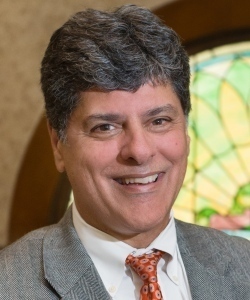On February 10th of this year the Connecticut Banking Commission introduced a bill to the Connecticut Legislature entitled An Act Concerning the Protections of Elderly Persons from Actual or Suspected Financial Abuse.
What does this Bill say? Subsection (b) of the Bill states the following:
· If a financial institution or any of its employees has reasonable cause to believe that a transaction or disbursement involving an account of an elderly person may involve, result in or contribute to the financial exploitation of an elderly person, then the financial institution may delay - or even refuse – to execute the transaction or disbursement.
In the Statement of Purpose under the proposed legislation, the drafter of the Bill states that this legislation is for the purpose of protecting elderly persons from actual or suspected financial abuse.
On the face of it, this Bill seems well-intentioned. After all, the title of the Bill is An Act Concerning the Protections of Elderly Persons from Actual or Suspected Financial Abuse. However, if this Bill were to become law, it could have the effect of negating certain provisions in the Uniform Power of Attorney Act that lays out a process that should be followed by a financial institution, when refusing to accept a Power of Attorney. So rather than follow the procedure laid out in the Uniform Power of Attorney Act for deciding whether to accept a Power of Attorney, this proposed legislation would give the banking industry more discretion in determining whether to accept or refuse someone’s Power of Attorney. So this legislation could lead to a situation where someone’s Power of Attorney is not given effect when in fact, that may not have been what the principal intended.
What does the Uniform Power of Attorney Act say in this regard?
§ 1-350s(a)(1) of the Connecticut General Statutes states that a person – such as a financial institution or its employee - shall either accept an acknowledged Power of Attorney or request a certification, translation or an opinion of counsel, not later than 7 business days after it is presented for acceptance. Subsection (a)(2) of that statute states that if a person requests a certification, translation or an opinion of counsel, then the person shall accept the Power of Attorney not later than 5 days after receiving it. And subsection (a)(3) of that statute states that a person may not require an additional or a different form of the Power of Attorney. These are the protections afforded financial institutions when it comes to accepting Powers of Attorney.
The only time a financial institution is not required to accept of Power of Attorney is when the principal under the Power of Attorney is not eligible or qualified to enter into the transaction with the financial institution; the transaction itself is inconsistent with state or federal law; the financial institution or employee has actual knowledge of the termination of the agent’s authority under the Power of Attorney; a request for certification, translation or an opinion of counsel is refused; the financial institution/employee has a good faith belief that the Power of Attorney is invalid; or the financial institution/employee has actual knowledge that someone has made a report to an entity - like the Department of Social Services - that the principal may be subject to some sort of physical or financial exploitation at the hands of the agent. CGS § 1-350s(b)(1 – 6). The bottom line is that these are the procedures that financial institutions must employ when deciding whether to accept or reject a Power of Attorney.
I submit that H.B. 7029 seeks to do an end run around the current law and to broaden the powers of the Banks, by giving them the ability to refuse every “elderly” customer access to their own money. The question is, do we want to give financial institutions this kind of power or are the protections under the existing law sufficient?
The last thing that is worth mentioning is that under the current law, if a financial institution refuses to accept a valid Power of Attorney, that financial institution is subject to an order from a court that mandates the acceptance of the power of attorney and the court may award reasonable attorney’s fees and costs incurred to the party who prevailed in seeking the enforcement of the Power of Attorney. CGS § 1-350s(c). The proposed legislation would effectively grant immunity to financial institutions from any civil, criminal or administrative liability that might otherwise exist for delaying a transaction or disbursement or for refusing to execute a transaction or disbursement with the use of a Power of Attorney.
So does this legislation seek to protect elderly persons from actual or suspected financial abuse? Or is the banking industry seeking to broaden its powers and absolve itself from any responsibility for refusing to honor Powers of Attorney under the proposed law? The Legislative Committee of the Connecticut Bar Association is urging the Elder Law Section to oppose the Bill. Stay tuned.

